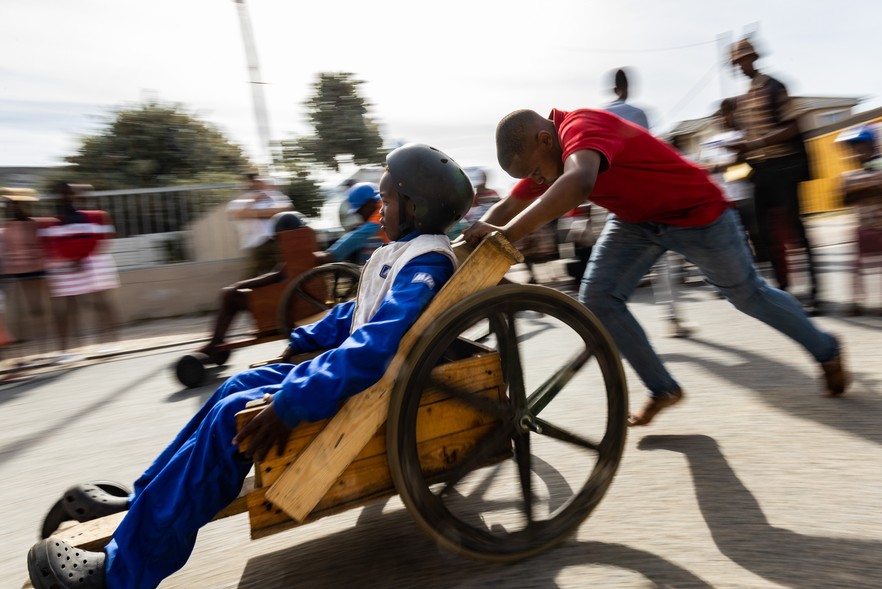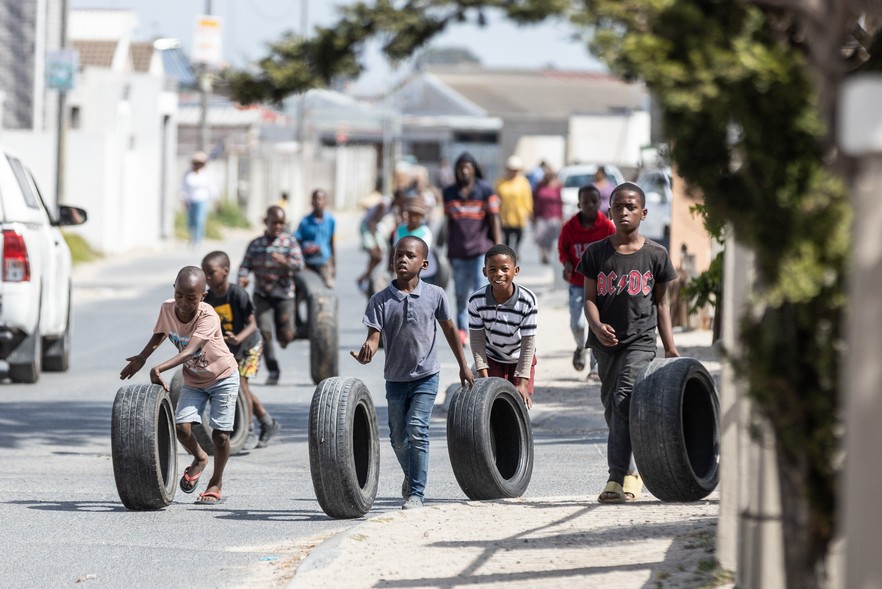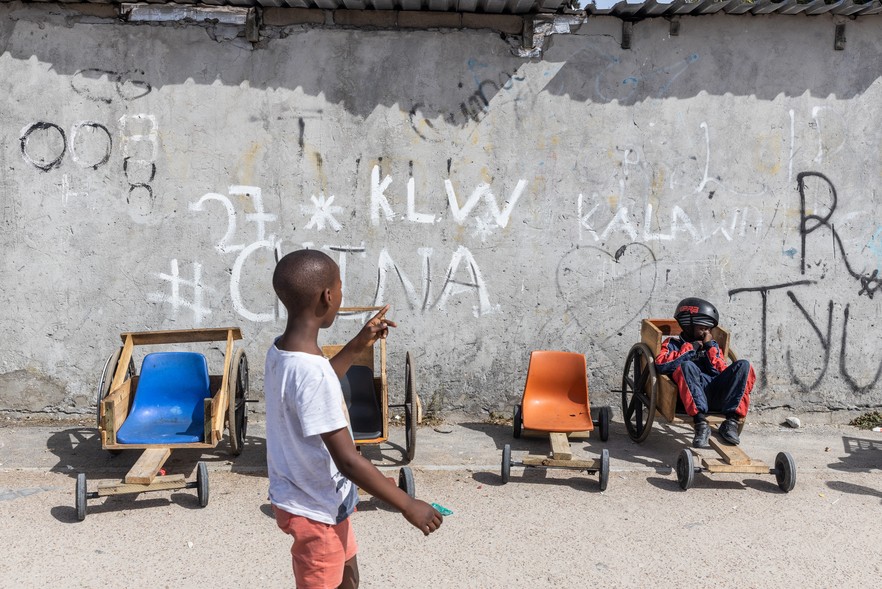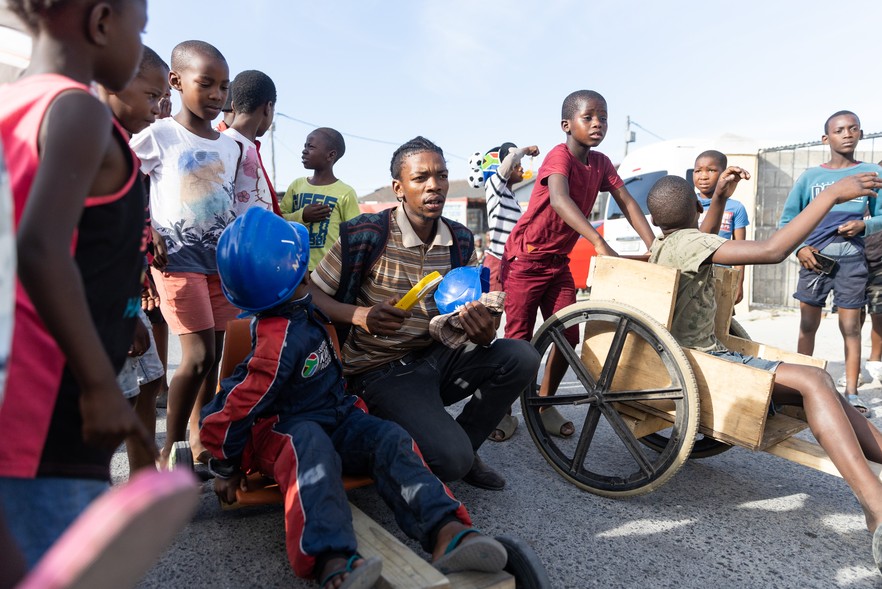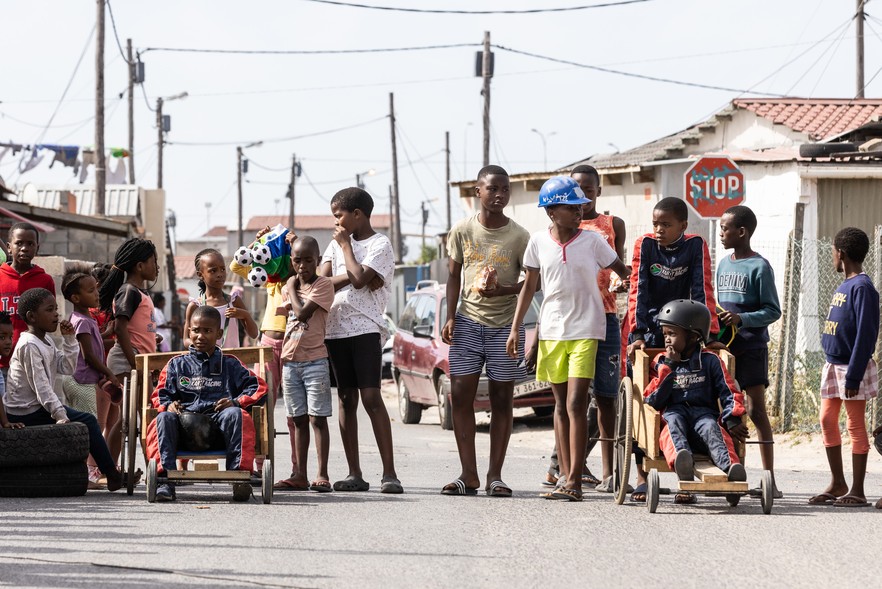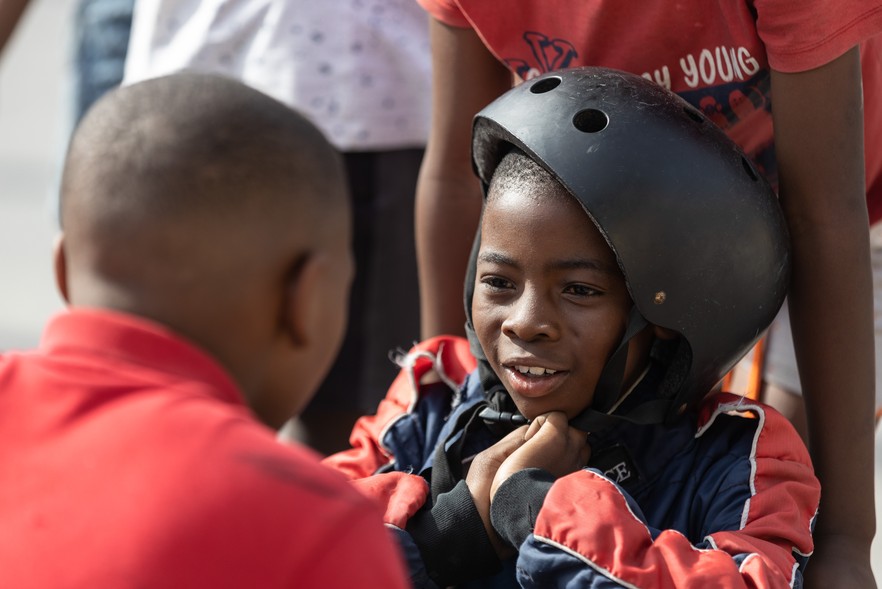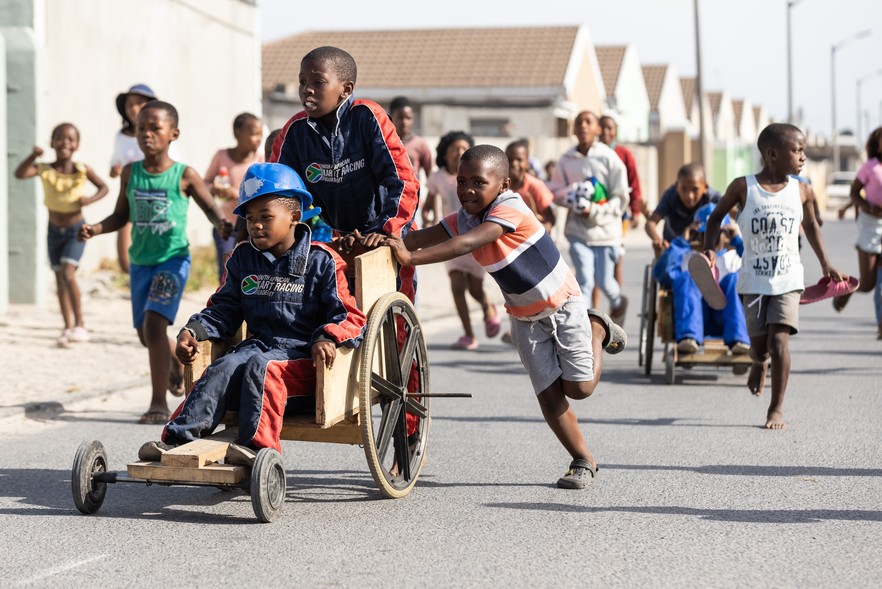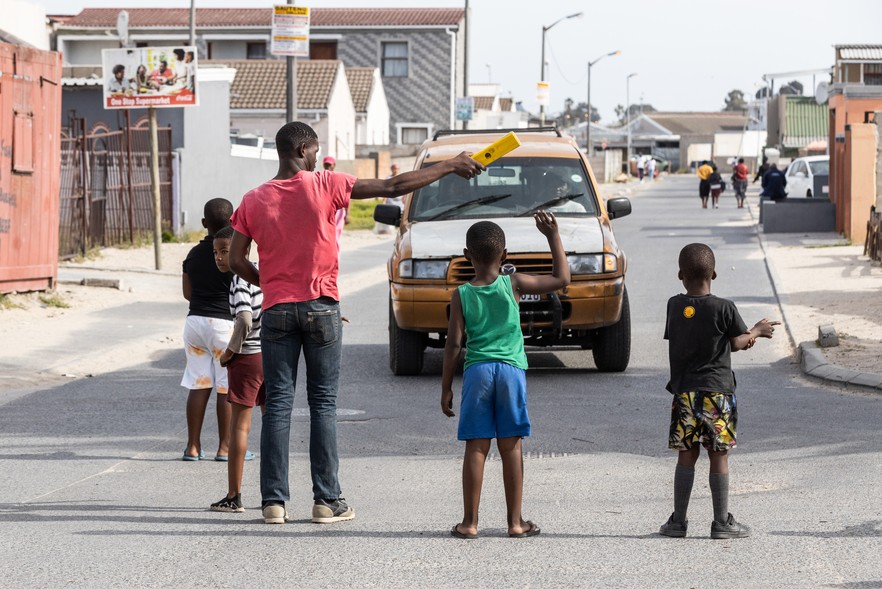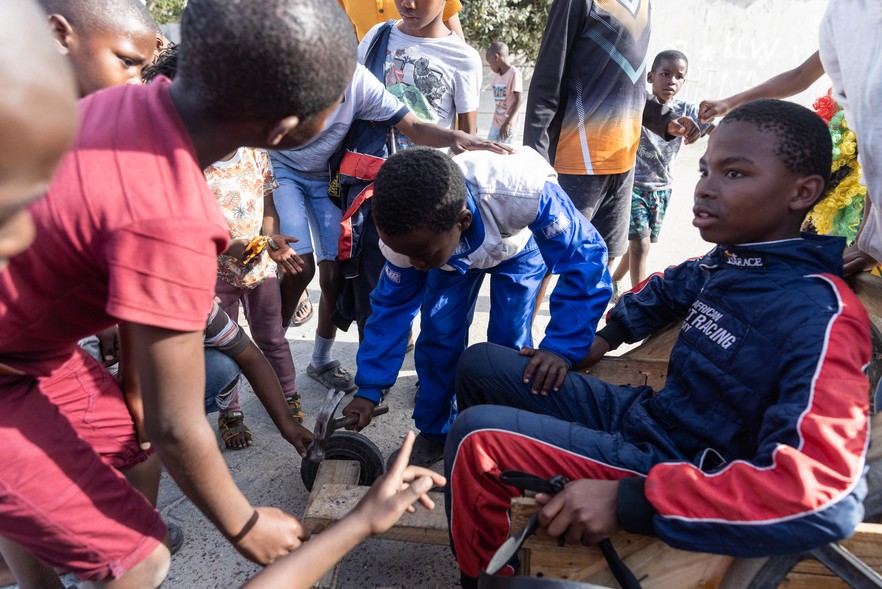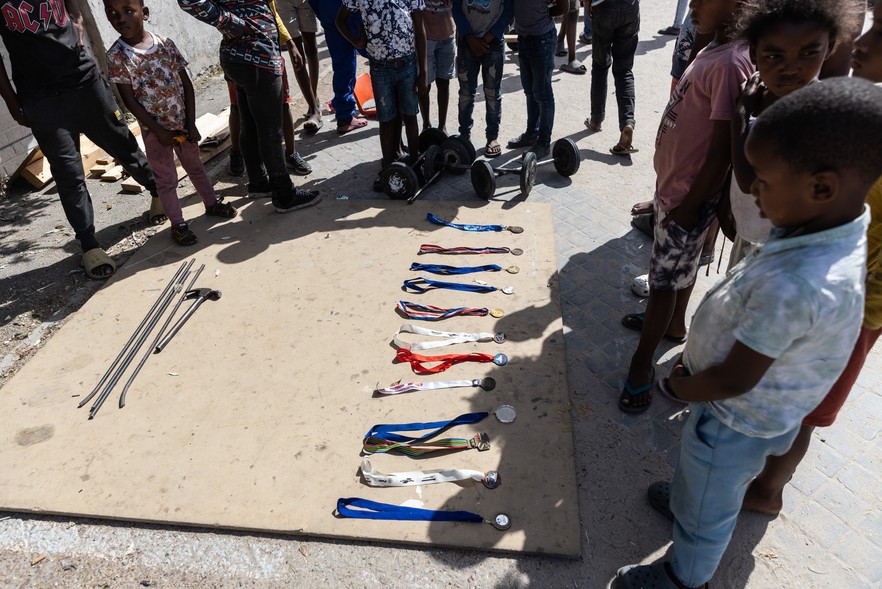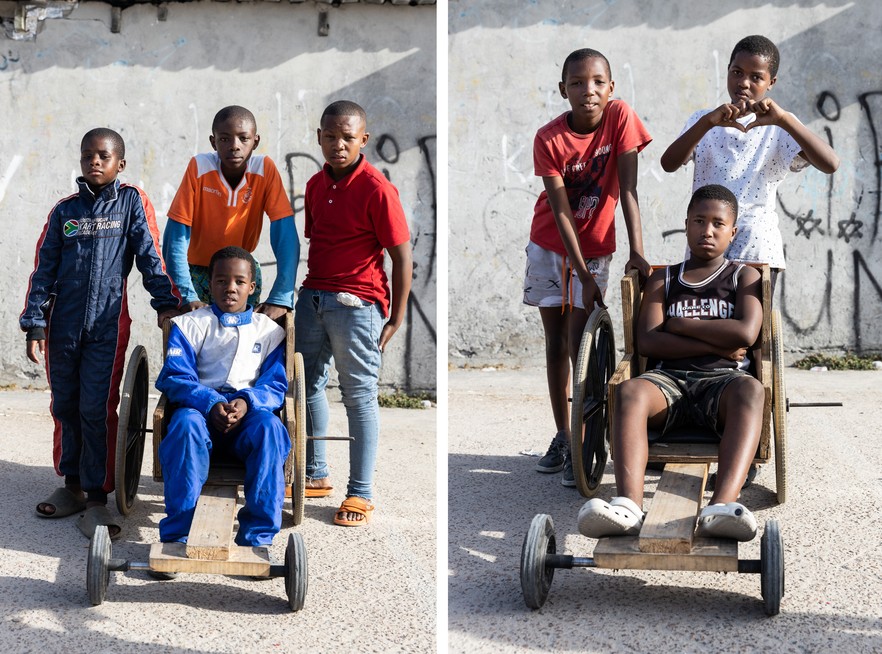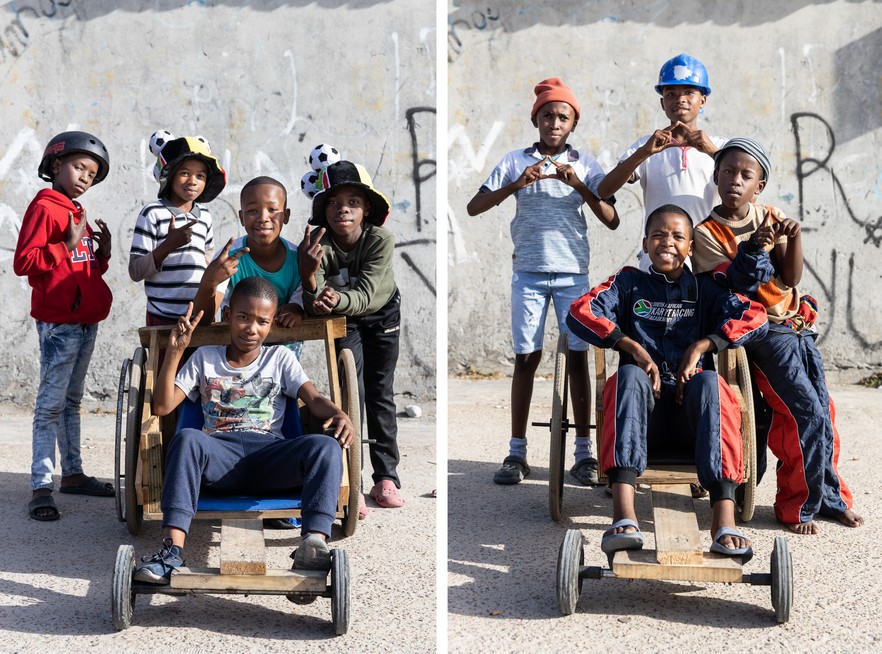Gugulethu goes gaga for go-karts
Children raced against each other on the weekend but there’s more to this than fun
Children compete in a go-karting tournament in Gugulethu, Cape Town.
Two large wheelchair wheels and two dustbin wheels. Wooden planks, bearings, rods and nails. These are the materials children have used in Gugulethu to build go-karts to race through the township streets.
They did so as part of a two-day competition, New Race Go-Kart Tournament, which ran in Gugulethu over the weekend. Hosted by Nulife Activities, the non-governmental organisation got permission from residents to divert traffic and lay rubber tires on the streets as safety barriers.
Before the start of the competition, children roll tires down the streets to set up safety barriers. The tires come from the local puncture repair shop and a nearby illegal dumping site.
With the help of Nulife Activities, children built and raced non-motorised go-karts.
Hot Wheel Boys, Team Chocolate, Hot Boys and Luyolo Boys were the four teams that participated on Saturday. Each team had at least three members aged 9-14. Many more children came to dance, play and watch the spectacle. The next day, about 60 children and over ten teams participated.
Nulife Activities was founded by Elethu Nkala (centre) and Siyavuya Somchiza.
“I grew up playing with go-karts,” says Elethu Nkala, co-founder of Nulife Activities. As a child, Nkala would take the train to Mnandi beach, and return with bunches of mpepo (an indigenous herb). He would then sell it to the community, transporting it on his go-kart. Growing up, Nkala says that he built his own go-karts and that inspired him to create these race events.
For children in Gugulethu, he says that “there’s nothing to do other than going to school and coming back”. He says that “our idea is to expose our kids to different things from what they are used to in the township”.
For safety, only two go-karts are allowed to race at a time. The track, which is the road, is in the shape of a square and ends at the start.
Liyakhanya Mgangxela of Team Chocolate talks with his teammates before racing.
But it isn’t just about the racing. For over a week, the organisation has been assisting the children with getting materials, building the go-karts, learning about safety and getting permission from their parents. They also spoke to the community who helped cordon off the streets and set up safety barricades.
Crowds of children ran after the competitors during the race.
They managed to get the big wheelchair wheels donated to them by the occupational therapy department at Groote Schuur Hospital. The seats were donated by a local primary school and the wood comes from Nkala. The front smaller bin tires are purchased from a scrapyard for R10 each.
After the first event in 2020, Killarney sponsored a group of children to watch motorised go-karting on their track. And the end of the day they were given race suits, and medals, which are all being used for the tournament. The hard hats that they use to race in were donated by members of the community.
Using a bright yellow piece of wood, volunteers divert traffic.
Most teams are made up of four children. One pushes and the driver steers using his feet. The others act as the repair and support crew. If there is a crash, the team will get a ten-second penalty. “We have to penalise them so that they understand that the rules are there to protect them, and also to keep the integrity of the race,” he says. Nkala says that penalising them also acts as a “form of discipline”. The support crew would then quickly fix the go-kart if things go wonky.
A quick repair is done after the mechanism holding the front wheels broke off.
As for the rules, the go-kart has to be stable. To avoid collisions, only two karts race at a time and you shouldn’t ride behind one another. There aren’t brakes, but that is something they are still trying to figure out. “It’s still a bit dangerous but we’re working on ways to better control it,” Nkala says.
Children stare at the race medals that were donated. Some of the medals say “Supakarts: 2008 SA National Karting Championships, Killarney”, “Clubmans ‘C’ 1 December 2012” and “WPMC Karting Nationals Cape Town 2014”.
“There is no activity that is happening around here,” says Siyavuya Somchiza, co-founder of Nulife Activities. “There is another sport besides playing soccer,” he says. Other activities that the organisation focuses on are music, dancing and workshops on gender-based violence.
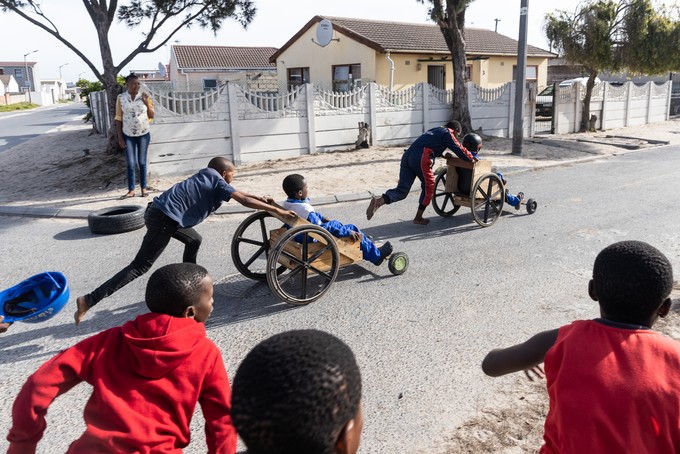
A race is underway!
Nkala says that in motorsport, there aren’t many children from townships. He hopes that this could be their introduction. In the future, he wants to start his own motorised go-karting club in Gugulethu and get more children to race outside the township.
They are also trying to find an enclosed space for the kids to practice go-karting and would like to expand the competition to more areas.
Team Hot Boys and Team Luyolo Boys.
Team Hot Wheel Boys and Team Chocolate “Izinja zegame”.
Support independent journalism
Donate using Payfast

Next: Appeal court trashes Siyangena’s R5.5-billion appeal bid
Previous: Municipalities are failing to provide clean water. Citizens are stepping in to fix the problem
© 2022 GroundUp. This article is licensed under a Creative Commons Attribution-NoDerivatives 4.0 International License.
You may republish this article, so long as you credit the authors and GroundUp, and do not change the text. Please include a link back to the original article.
We put an invisible pixel in the article so that we can count traffic to republishers. All analytics tools are solely on our servers. We do not give our logs to any third party. Logs are deleted after two weeks. We do not use any IP address identifying information except to count regional traffic. We are solely interested in counting hits, not tracking users. If you republish, please do not delete the invisible pixel.

